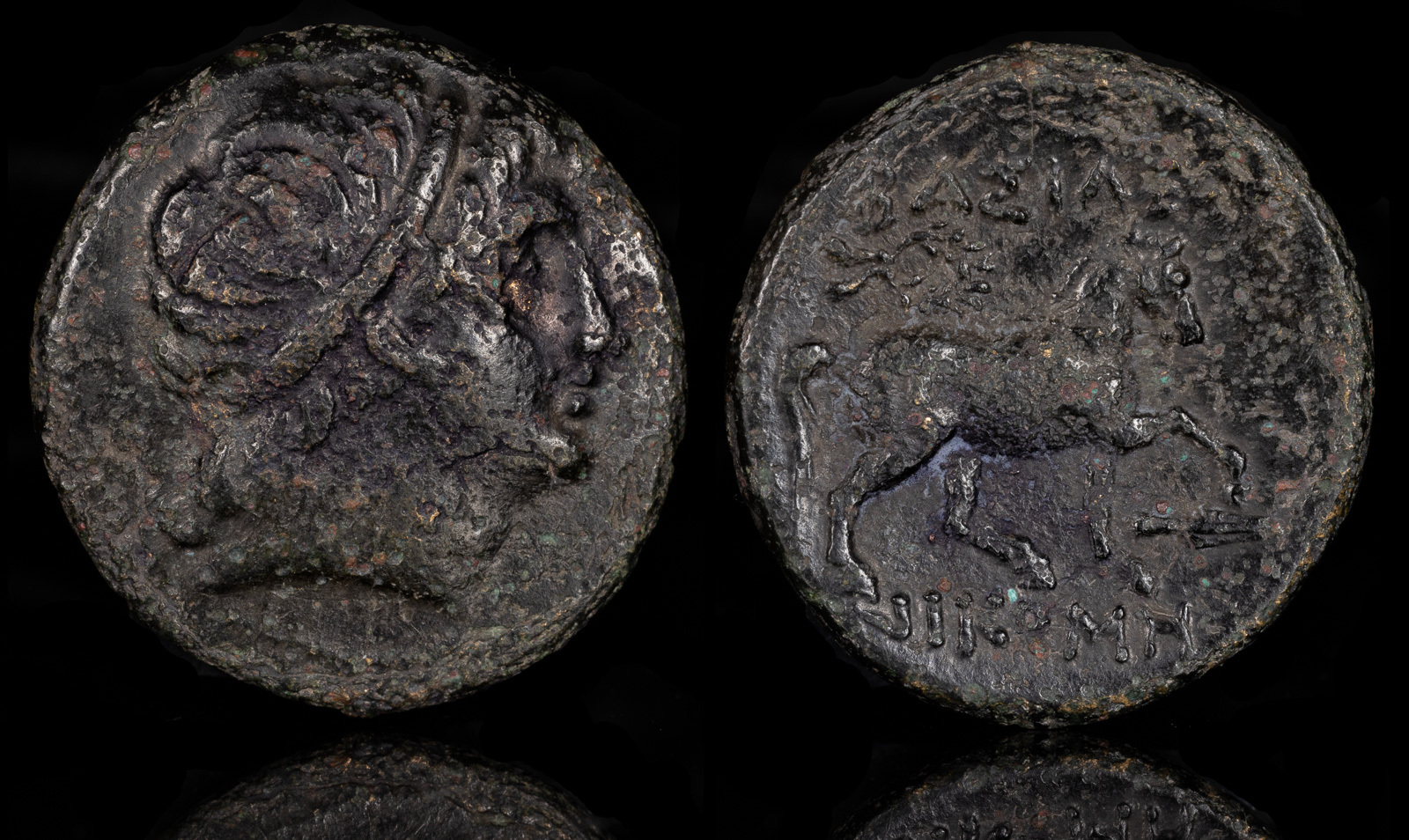
circa 280-250 BCE
AE Bronze, 23 mm, 8.75 g, 6 h
Diademed head of Nikomedes I to right.
Rev. BAΣIΛE – NIKOMH Horse prancing right; above, wreath; below foreleg, spearhead.
RG 7. SNG von Aulock 242
Zipoites (326-278 BCE)
Zipoites was the founder of the Bithynian kingdom and in 297 BCE he adoped the title of Basileus (king). He was a major player among the Diadochi and waged wars against Antigonos, Seleukos, and Lysimachos. Sadly, he issued no coins that we’re aware of. That certainly seems odd given that he reigned for a very long time and those around him minted coins.
Nikomedes I (278-255 BCE)
Nikomedes is best known as the guy with the idiotic idea to bring the Gauls over. They would prove a major nuisance for the region for some time. He is the first to mint coins. His silver issues are rare and expensive, but I have two bronzes.
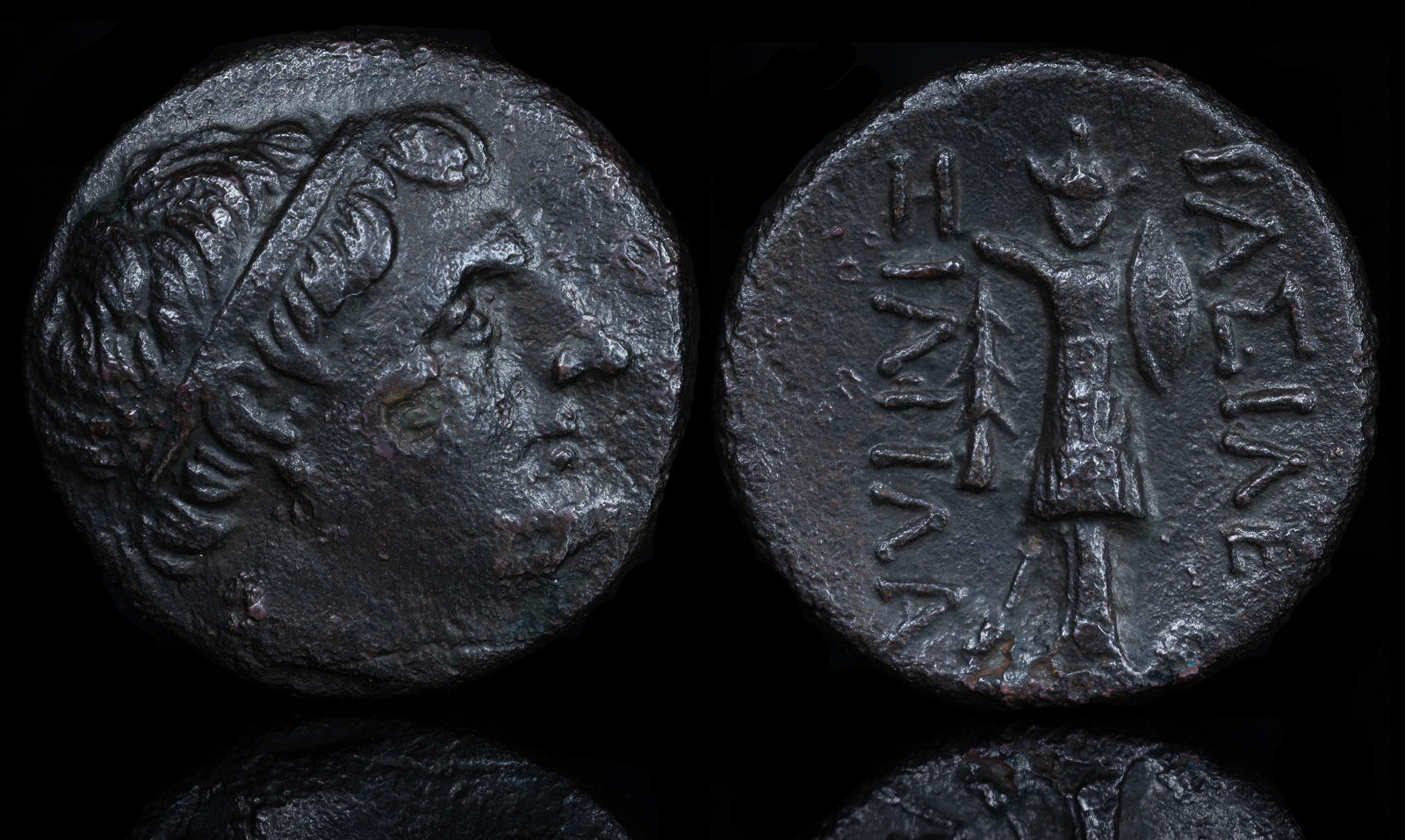
AE 18 mm, 4.89 g, 1 h
Diademed head of Ziailas to right. Rev. BAΣIΛE[ΩΣ] / ZIAHΛA Tropy of arms. Mørkholm, Early Hellenistic Coinage, 416. SNG von Aulock 243
Ex Obolos October 2020
Ziailas (254-228 BCE)
When Nikomedes died, Ziailas – who was a son of Nikomedes from his first wife – was denied the throne by his second wife, Etazeta, who ruled as regent for her two young sons. Ziailas took refuge with Arsames I, then was aided by Galatians in reclaiming his kingdom. He was eventually killed by the Galatians.
Coins of Ziailas are the rarest of the Bithynian kings and do not come up for sale often. Only bronze issues are known.

circa 230-182 BCE
Tetrachalkon (Bronze, 28 mm, 10,27 g)
Laureate head of Apollo to left. Rev. ΒΑΣΙΛΕΩΣ
ΠΡΟΥΣΙΟΥ Helmeted and winged figure of Athena-Nike standing to left, crowning the king’s name with her right hand and resting her left on a shield by her side; in field to left, monogram.
HGC 7, 615. RG 16. SNG von Aulock 6880
Prusias I (228-182 BCE)
Prusias may have been the most powerful of the Bithynian kings. He married a daughter of Demetrios II of Macedon and gave refuge to Hannibal. He remained neutral with Rome’s tangle with Antiochos III.
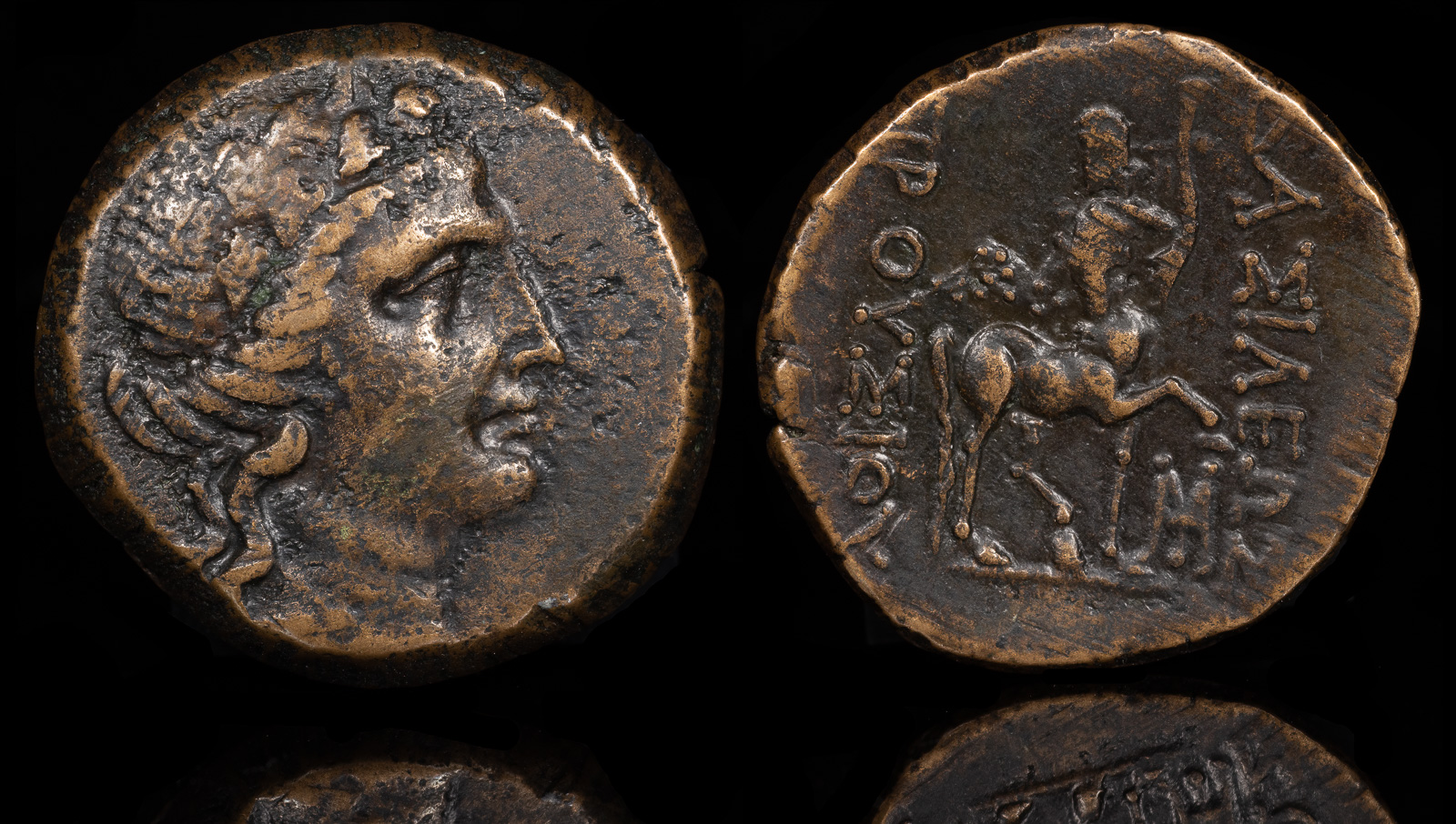
AE Unit 20.5mm 6.41g 12h
c. 180-150 BCE
Laffaille430 var. – Cop.- – Aulock6886 var. – RG.26 – BMC.- – HGCS. 7/629
0avers : Buste imberbe, juvénile et drapé de Dionysos (Bacchus) à droite, couronné de feuilles de vigne.
0revers : Le Centaure Chiron à droite, la tête de face, jouant de la lyre, sa tunique flottant derrière.
Prusias II (182-149 BCE)
Prusias II was honored with a monument at Delphi that still stands today. Prusias was murdered at the direction of his son, Nikomedes II, when he attempted to have him murdered to pave the way for the children of his second wife.
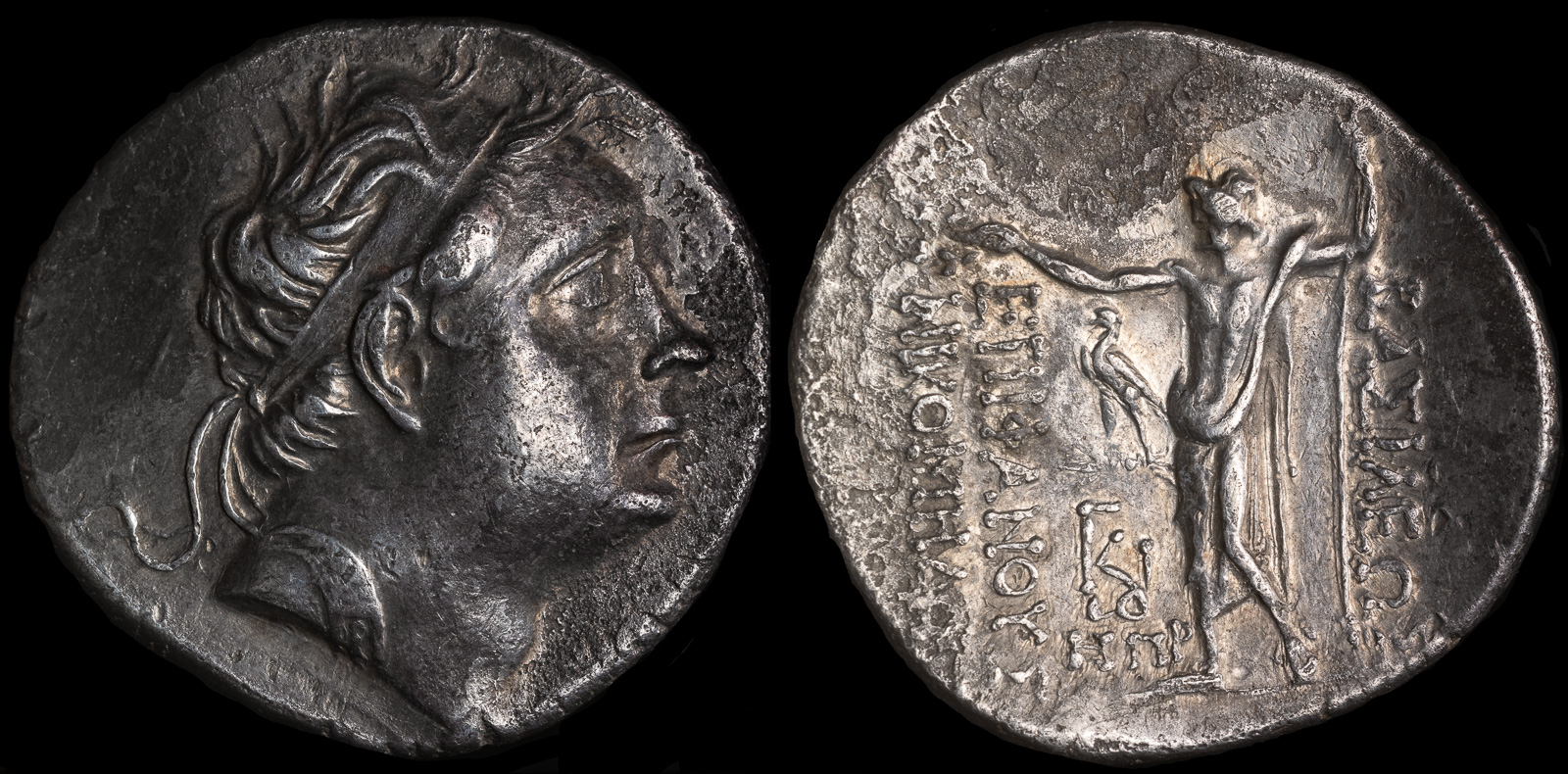
Dated BE 188 = 110/9 BCE
AR Tetradrachm 16.35g, 33mm, 12h.
Diademed head to right
Zeus Stephanophoros standing to left, holding wreath and sceptre; BAΣIΛEΩΣ to right, EΠIΦANOYΣ NIKOMHΔOY to left, eagle on thunderbolt over monogram above HΠP (date) to inner left.
RG 40 (date and monogram combination not listed); DCA 444; HGC 7, 642.
Nikomedes II (149-127 BCE)
Nikomedes kept his kingdom strong by remaining a loyal Roman ally. He introduced the Bithynian date system on coins.
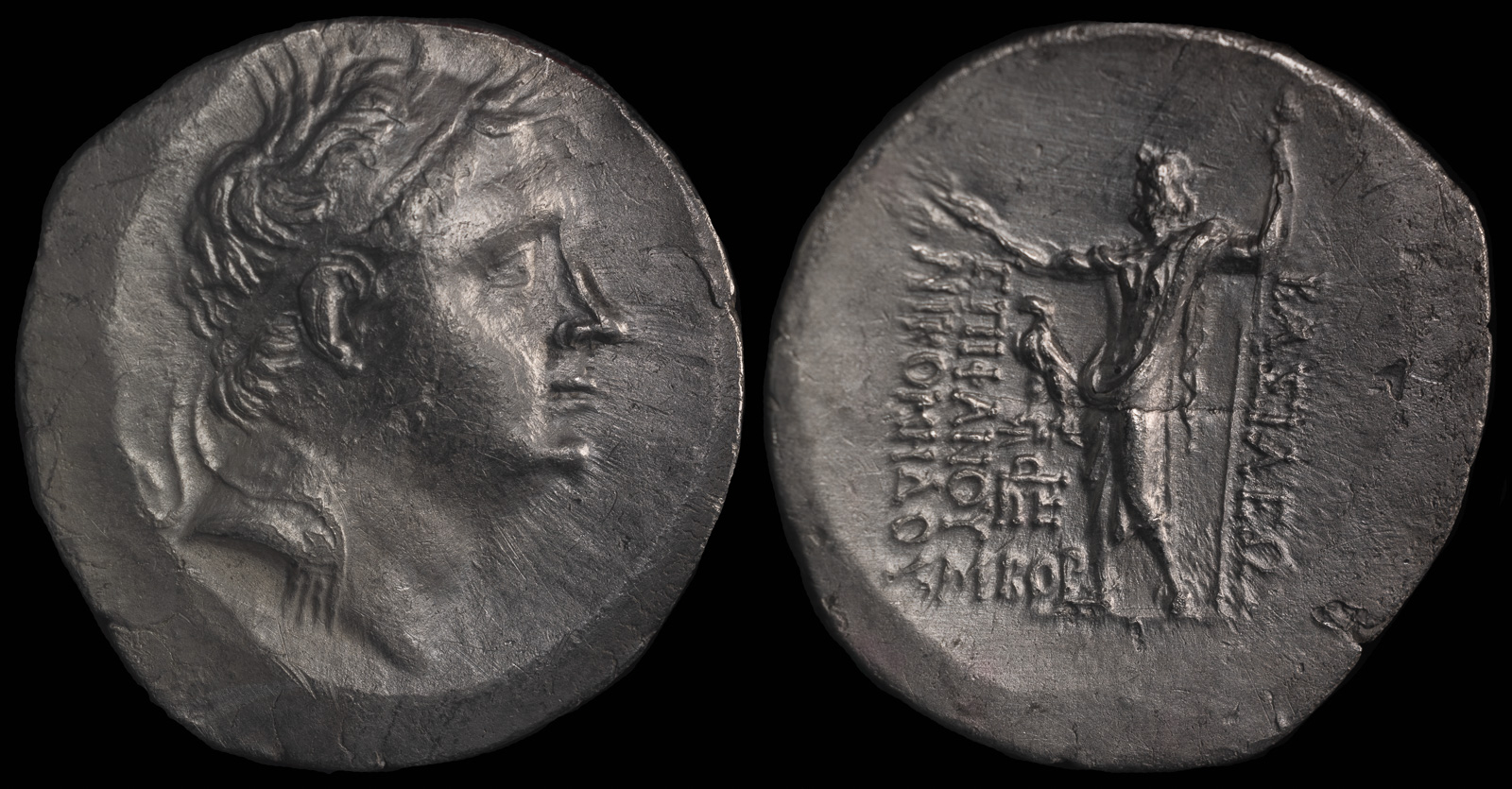
Dated BE 172 = 126/5 BCE
AR Tetradrachm 36 mm, 15,94 g
Obv: Diademed head of Nikomedes III
Rev: BAΣIΛEΩΣ / EΠIΦANOΥΣ / NIKOMHΔOΥ Zeus Stephanophoros standing left; to inner left, eagle standing left on thunderbolt above monogram and BOP monogram
SNG von Aulock 6894
Nikomedes III (127-94 BCE)
Until recently, this was the only Bithynian Pokémon I lacked. Nikomedes III spent a good deal of his reign tangling with Mithradates VI of Pontos.

Dated 92/91 BCE
Tetradrachm AR 34mm, 15,73g
diademed head right
rev., Zeus standing left with wreath and sceptre; dated year 206
Rec. Gen p. 232
Nikomedes IV (94-74 BCE)
Nikomedes IV was initially booted from his kingdom by Mithradates VI, then reinstalled by Rome. He is rumoured to have had a tryst with a young Julius Caesar. On his death he bequeathed his kingdom to Rome.